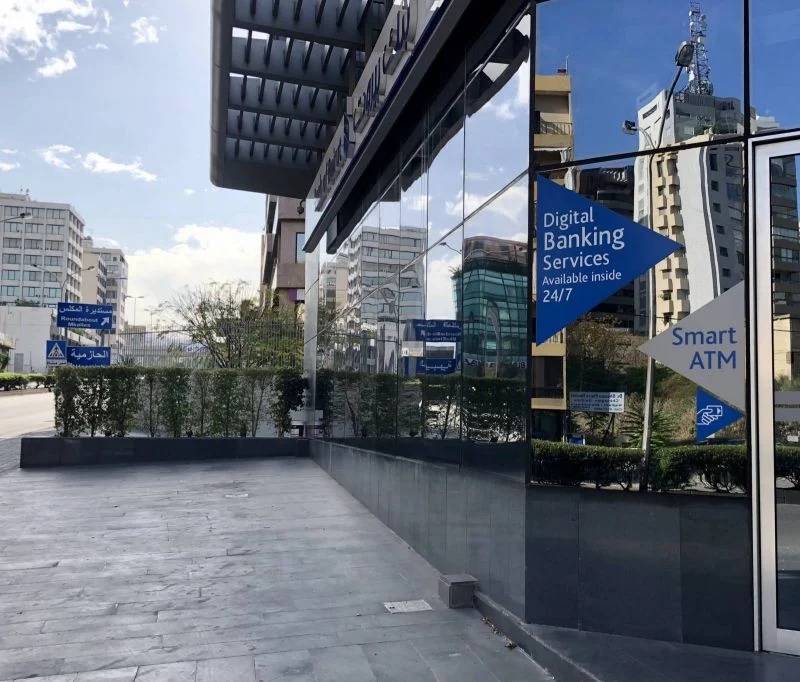
Parliamentary committees are discussing a revised draft of the capital control law and banking secrecy law. (Credit: Philippe Hage Boutros/L'Orient-Le Jour)
BEIRUT – The Finance and Budget Committee began reviewing the government’s proposed amendments to the banking secrecy law on Thursday, with the committee’s head projecting that the review will be completed in 10 days. Also on Thursday, Deputy Parliament Speaker Elias Bou Saab held roundtable discussions with experts around the capital control draft law.
Here’s what we know:
• The preliminary agreement the Lebanese government reached with the International Monetary Fund on April 7 listed reforming the banking secrecy law as a requirement towards unlocking the potential $3 billion in financial assistance. The agreement stated that it is important to bring the law “in line with international standards to fight corruption and remove impediments to effective banking sector restructuring and supervision, tax administration, as well as detection and investigation of financial crimes, and asset recovery.”
• Proposed amendments to the banking secrecy law were approved by the government on April 14 and the bill was sent to the parliamentary committees for review, before final voting.
• MP Ibrahim Kanaan (FPM/Metn), chair of the parliamentary Finance and Budget committee, told L’Orient Today after Thursday’s meeting that the current draft law contained many factual errors and for the purpose of expediting the process, the draft will be transferred to a newly created subcommittee, over which he will preside, and which will work on finalizing the review in 10 days. He called for another meeting to be held next Thursday.
• The proposed amendments include several articles that modify the provisions of the Sept. 3, 1956, law establishing bank secrecy: Article 105 of the Code of Criminal Procedure (on the admissibility of elements collected during a flawed procedure); Article 150 of the Code of Money and Credit (on the obligation of the central bank to respect banking secrecy); Code of Fiscal Procedure (Law No. 44 of Nov. 11, 2008).
• Karim Daher, president of the Lebanese Association for Taxpayers' Rights (ALDIC), in a previous statement to L'Orient-Le Jour on the proposed amendments, said that there are three objectives for the new amendments: to strengthen the fight against tax evasion; to bring Lebanon closer to international standards in the fight against money laundering and terrorist financing; and to maximize the effectiveness of the lifting of banking secrecy in the fight against corruption.
• Daher also stated that the wording of Article 7 of the draft law would be particularly decisive, since it would oblige banks to provide information requested by several bodies — including the National Commission for the Fight against Corruption, the Banking Control Commission of Lebanon, the National Deposits Guarantee Institution, the Banque du Liban as well as the tax authorities — in the context of proceedings under Law No. 44 of Nov. 24, 2015, on the fight against money laundering and terrorist financing.
• The Finance and Budget Committee meeting was attended by caretaker Deputy Prime Minister Saade Chami, Finance Minister Youssef Khalil, representatives of the central bank and the Beirut Bar Association.
• Deputy Speaker Elias Bou Saab met on Thursday with a number of financial, legal and economic experts, in addition to representatives of the Association of Banks in Lebanon and economic and industry organizations, to discuss their views of the different policies needed to help the country out of the crisis, including the issue of the capital control draft law.
• Marwan Barakat, Group Chief Economist and Head of Research of Bank Audi told L’Orient Today, “The ratification of a capital control law is a necessary milestone, even if coming late, as Lebanon cannot go back to positive growth and awaited recovery without normalizing financial and banking activity through official capital controls. In addition, it represents a requirement from international reference institutions such as the IMF, the World Bank, the IIF and rating agencies. Beyond the details of the law, It is actually a prerequisite for any economic plan to exit the prevailing crisis.”
• Daher told L’Orient Today that “today’s discussions were limited to a general overview of the position and views of each expert without going into details and discussing the law article by article. Each participant will send his proposals and comments before the next meeting to define the general lines and cross-cuttings before discussing the law in depth.”
Here’s what we know: ...